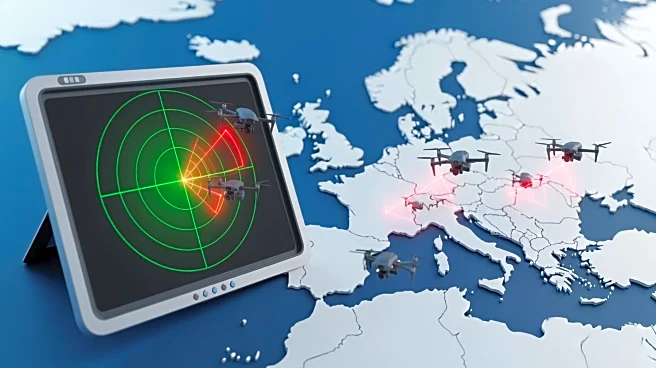What's Happening?
Ukrainian President Volodymyr Zelensky has issued a warning to NATO, highlighting that Russia is testing the integrity of European NATO allies through airspace violations using drones. Zelensky expressed
concerns that these actions are perceived by Russia as a sign of weakness, which could embolden further aggressive narratives. He emphasized that Russia interprets intellectual responses from Europe as weakness, which does not facilitate dialogue but rather encourages Russia to impose its narratives. Zelensky described these drone incursions as tests of Europe's responses and a measure of how the United States might react to threats against European NATO members. Russia, on the other hand, has denied any deliberate airspace violations and accuses NATO allies of seeking conflict.
Why It's Important?
The situation underscores the ongoing tensions between Russia and NATO, with potential implications for European security and stability. If Russia perceives NATO's responses as weak, it could lead to increased aggression and further destabilization in the region. This development is significant for U.S. foreign policy, as it tests the commitment of the United States to its NATO allies and could influence future military and diplomatic strategies. The potential for escalation could impact global markets, defense spending, and international relations, particularly between Western nations and Russia.
What's Next?
As the situation develops, NATO may need to reassess its defense strategies and response mechanisms to address the perceived threats from Russia. This could involve increased military readiness, strategic deployments, or diplomatic efforts to de-escalate tensions. The United States and European allies might engage in discussions to strengthen their collective security measures and ensure a unified response to any further provocations. Monitoring Russia's actions and intentions will be crucial in determining the next steps for NATO and its member countries.










